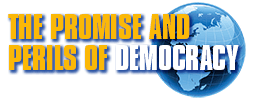The United States are slated to hold presidential and federal legislative elections on November 3, 2020. As President Trumps first term comes to an end, questions about holding the elections amid the country-wide Corona virus crisis have resurfaced in recent days. In an interview with Time Magazine, White House senior adviser and presidential son-in-law Jared Kushner appeared ambiguous concerning the election date. Kushner’s remarks have prompted concerns that the Trump administration might use the pretext of the crisis to attempt a delay in the election. Presumptive Democratic presidential nominee Joe Biden said at a virtual fundraiser last month about Trump: “Mark my words, I think he is going to try to kick back the election somehow — come up with some rationale why it can’t be held”.
The uncertainty surrounding the 2020 elections are mirrored in public sentiment. According to a new Pew Research Center poll, two thirds of the American electorate expect disruptions due to COVID-19.
Holding elections in an environment marked by fear of viral spread is inherently difficult.
The problem is exacerbated by the fact that over 50 percent of poll workers in the US are 61 or older, putting them in the category of people most vulnerable to the virus. However, delaying elections is not the prerogative of the administration. And as other countries like South Korea have shown, holding elections in times of a global pandemic is possible, if difficult.
